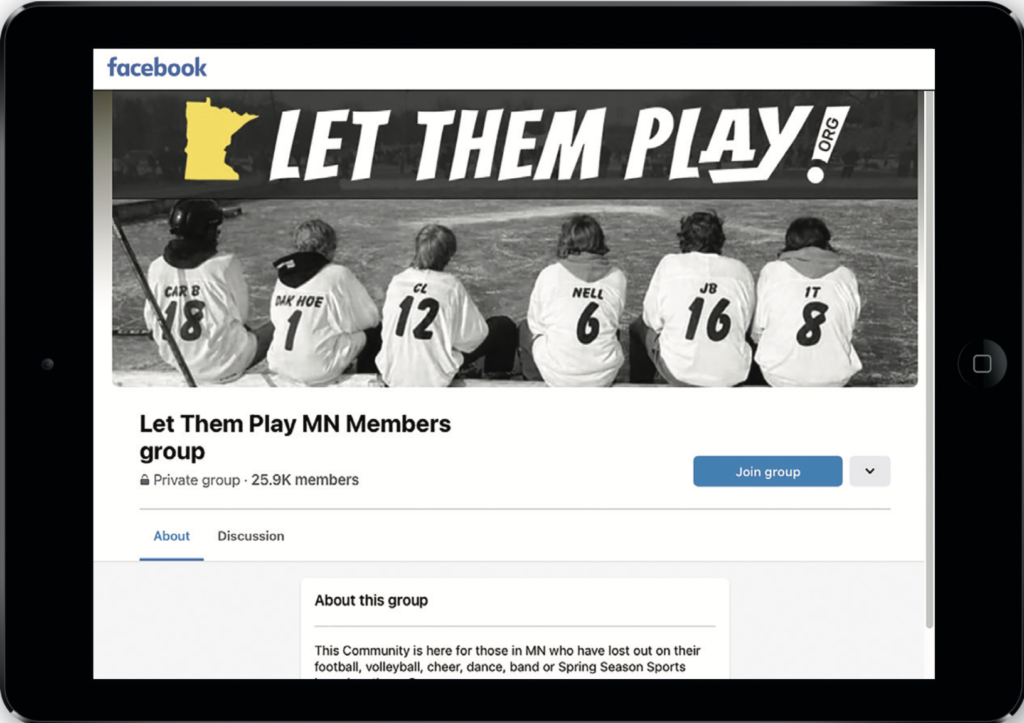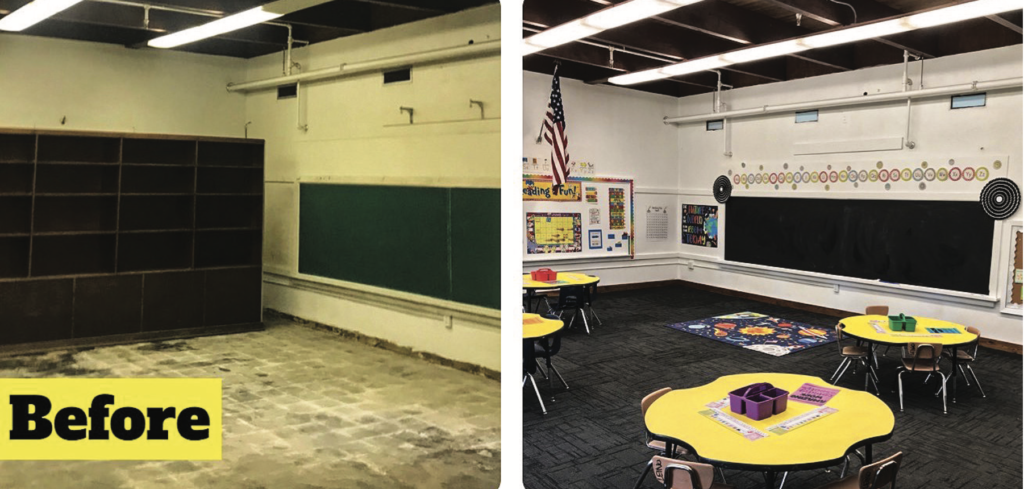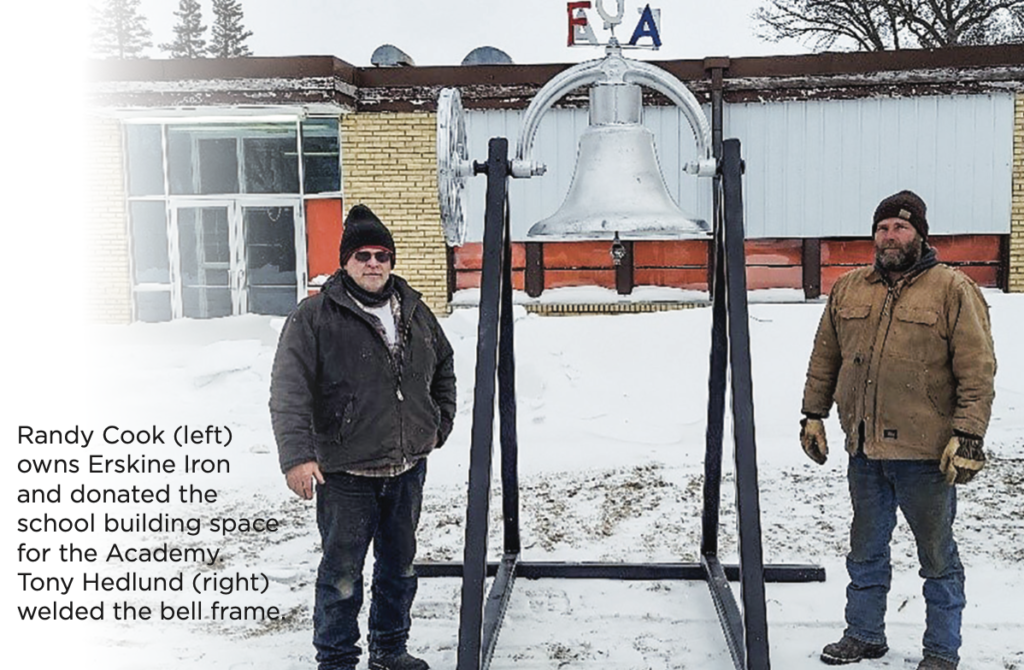Civil wars
Activists are discovering the power of working together to bring accountability to their communities.
On June 1, 2015, an overflow crowd packed Bloomington’s municipal Civic Plaza to hear why the city council had unilaterally decided to implement organized trash collection for the city, instead of letting the matter be determined by public ballot. The topic may have been trash collection, but the underlying sentiment for many attendees was the city council’s blithe disregard for their concerns.
Disregarding public opposition, the City argued that it would go ahead and privately negotiate with a consortium of Bloomington garbage haulers under the authority of a legislative action in 2013 designed to make it easier for cities to develop organized collection.
What the citizens of Bloomington did next provided a case study for a growing movement in Minnesota that shows how grassroots activism can make local government accountable to the people who elect them.
Starting at street level
Led by resident Joel Jennissen, Bloomington citizens formed the group Hands Off Our Cans. Their intent was stopping the city council from making decisions about trash collection without the consent of voters, or even their input. The group launched a two-front battle: to amend the city charter in order to put organized garbage collection on the ballot, and to vote down organized garbage collection. At the time, the city charter did not expressly address garbage collection. The city council used that as an opening to take it upon themselves to make a top-down decision rather than defaulting to a vote by the citizens of Bloomington. This is where the pushback began.

Despite having the difficulty of organizing a city of over 86,000 residents to a common cause, Hands Off Our Cans accomplished an improbable feat by obtaining enough petition signatures to get the two questions on the ballot. They had to overcome a city council who already planned and implemented organized trash in the interim, and to motivate voters to action.
The group recruited volunteers from across the city and staged petition signing events, spreading word through social media such as Facebook and Nextdoor. But sheer numbers weren’t their only tool. Determination and resistance were perhaps their greatest assets. For the question to finally get to the ballot, the group had to sue the City of Bloomington in a legal battle that went all the way to the Minnesota Supreme Court in 2020. The citizens ultimately prevailed to get the issue on the Bloomington ballot. But the larger victory was that they were able to reclaim decision-making power about an issue that directly impacted their community from unsympathetic civic leaders.
In a 2020 interview with the Star Tribune, Greg Joseph, an attorney for the Hands Off Our Cans group, reiterated that the real issue wasn’t about trash. “The suit was about letting the people decide. … The next time it might be about something you care about.” For Bloomington residents, organized trash collection provided the impetus for action. For other communities, it might be about increasing sales taxes, prohibiting the sales of menthol cigarettes, or whether to fund new public works projects or construction of new roads that divide neighborhoods. But no matter what the exact issue, more Minnesotans are realizing they don’t have to accept decisions from lawmakers or public policy bureaucrats without making their opinions known first. The power, after all, lies with the people and public servants are supposed to serve the public interest. Across Minnesota, citizens are coming together to be champions of their communities.
More than a game
Championing a cause sometimes starts with just one person and one idea. Seeking out others with common goals and building from existing relationships can turn a niche cause into a great movement, especially when citizens feel their rights have been infringed upon by local government authorities, as seen in the wake of COVID-19 policies.

One such group, Let Them Play Minnesota, exploded from a Facebook page started by Dawn Gillman. The group quickly grew to over 26,000 members statewide — all with the common goal of reversing Gov. Tim Walz’s decision to shut down high school sports during the pandemic.
Although the campaign had a modest beginning with Gillman, a mother of five from Dassel, Minn., the impact of the group was felt across the state. A group of high school student-athletes rallied in front of the governor’s mansion to deliver a letter to Walz asking him to resume high school sports. The movement could not be ignored. MPR quoted Anoka-Hennepin Superintendent David Law, “The Let Them Play Facebook page out of our district has over 3,000 followers. There’s nothing comparable that says, ‘Let them be in school.’” This groundswell led the state’s largest school district to vote 5-1 in favor of resuming high school sports, and along with it, a semblance of normalcy for thousands of high school athletes. Additionally, the group had the legal resources to again sue the governor when Walz declared a four-week pause to winter sports in December 2020.
Accountability to the people
Minnesotans are starting to demand accountability from their community leaders, and sometimes it’s even a matter of life or death. Minnesota’s Supreme Court gave Minneapolis activists a significant victory when it reinstated the writ of mandamus — essentially ruling to reinstate a district court order requiring a minimum number of Minneapolis police officers. Now, Mayor Jacob Frey will have to show cause why he failed to perform his duty to provide those officers. “This is a huge victory for the people of Minneapolis and the residents of the North Side,” says James Dickey, senior trial counsel at Upper Midwest Law Center (UMLC) who represents the group.
Dickey praises their courage and endurance. “They have been absolutely unified as a team throughout this entire saga,” he says. “And my hat’s off to them for standing up for what’s right.”
In the wake of the 2020 riots following the death of George Floyd, the Minneapolis Police Department experienced massive attrition within its ranks while the city was enduring a corresponding spike in violent crime. A group of residents from the city’s hardest-hit areas felt that elected officials were failing to keep them safe and were unresponsive to their pleas for help. Working with UMLC they sued Frey and the city council, demanding the city fully staff its police department.
Back in June 2020, Cathy Spann, a north Minneapolis resident and plaintiff in the case, watched lawlessness and violence break out in her neighborhood as calls to defund the police grew louder. She and seven others decided to take action because “no one else seemed to be interested in helping.”
“Our clients are the ones suffering,” says Dickey. “They’re dodging bullets ripping through their neighborhood, they’re watching their neighbors and friends get shot, they’re watching their own houses get shot. It’s not fair to them.”
In 2020, eight residents charged Frey and the city council with failing to uphold the city charter, which required a minimum of 730 officers. (Because of new census data, that number has since risen to 743.) Initially, Hennepin County District Court sided with the residents, ordering the city to add more officers. But after the city appealed, the order was overturned, and the city was not required to meet that minimum. After appealing to the Minnesota Supreme Court, the case was accepted and expedited. Now, the outcome rests largely on the interpretation of the city charter.
The requirement to maintain a minimum police force was added in 1961 amidst a worsening crime wave. Residents voted to add the requirement to the city charter, tying the minimum number of officers to the city’s population (0.0017 officers per resident). In 2013, the city voted to update the charter’s language, removing archaic words like “hereto” and “forthwith” to make it clearer, more succinct, and more easily understood. Now, the city argues that this language update actually changed the entire meaning of the police provision.
Because of the rephrasing, the city argues, the 2013 change effectively divided responsibility for enforcement between the city council and the mayor. So, the city council must fully fund the police force, but the mayor has discretion over how many (or how few) officers to actually employ. “It’s an unreasonable reading of the law,” says Dickey. “It goes against the basic understanding of how legislators and executives work. [They say] the city council has to do what the people put in the charter, but then the mayor can ignore it entirely.”
The Minnesota Supreme Court heard arguments on June 9 in Spann, et al. v. Minneapolis City Council and Mayor Jacob Frey. “We believe in law and order,” says Dickey. “And we believe that public safety is a prerequisite for being able to exercise the other liberties that we have in this great country and this great state.”
Community involvement
Having a stake in one’s community is just one piece of a larger part of this grassroots movement across Minnesota. The difficulty often comes from building support and getting people involved. “Complaining and arguing is one thing — an easy thing — that people like to do when they encounter something going on in their community they disagree with. But to turn that into action is another thing entirely,” explains Edina resident Dan Stocker (a relative of the author). It is a common refrain when asked what is the most difficult part of heading this type of community organization. Issue Edina hopes to change that. It is a new citywide group putting the spotlight on various civic issues that residents feel don’t align with their priorities. The group’s name reflects the need for a nonpartisan group of Edina residents focused on addressing their concerns where they thought the city’s elected leaders were lacking. The group is composed of approximately 45 members and continues to grow.
Initially, Stocker and a small group of Edina parents banded together because they were concerned about their inability to address and publicly discuss citywide issues. “We would like the leadership of our city to make decisions that reflect the values and opinions of our citizens rather than their own vision for Edina. This just isn’t happening,” he says.
To facilitate involvement, the group uses social media and established a website for residents offering easily accessible information about the community. Issue Edina emphasizes public schools, city development, and public safety, among other things. The website publishes crime statistics as well as contact information for the Edina police chief and links to the police department’s hiring page for those seeking employment information.
Working with another city group, Lake Cornelia Neighborhood, Issue Edina helped prevent a new firehouse station from being built in Rosland Park, one of two sites proposed by the city council. A second site, favored by residents in the Pentagon Park neighborhood, was chosen instead.
Issue Edina has helped parents understand what is being taught in their children’s classrooms. A post on their website informs Edina Highlands Elementary parents that fifth graders read Something Happened in Our Town: A Child’s Story About Racial Injustice out loud in class and then attended a play based on the book at the Children’s Theater Company. “Parents might know about the assignment,” Stocker says, “but they probably aren’t aware the story teaches inclusion by way of marginalizing and stereotyping police.” The story includes divisive anti-police messaging at a time when crime in Edina is on the rise.
A leap of faith
While many grassroots organizations work toward change through a better-informed citizenry, some are on a mission to build whole new institutions from the ground up. Minnesota’s embattled public schools are mired in controversies that pit parents against the teachers’ union, administrations, and school boards. COVID-19 remote learning showed many parents how much that was being taught in schools did not align with their values. As Critical Race Theory, equity studies, and gender ideology have figured more prominently in public schools, many families are turning to private or home schools as alternatives.
Jason and Holly Breckel took matters into their own hands. After learning more about the proposed changes to Minnesota’s K-12 social studies standards and local school policy changes regarding bathroom and locker room use for transgender students, the Erskine, Minn.-based couple along with 90 other concerned community members attended a school board meeting in May 2021 to let Win-E-Mac Public Schools know they were disheartened over the direction the district was headed.

Freedom Christian Academy before and after renovations performed by volunteers from the community.
“My family has gone through the Win-E-Mac school system for four generations,” Holly Breckel told American Experiment. “But what do you do when you feel like the administration is making decisions that introduce school safety issues and that parents no longer have a voice in our children’s education?”
With a population of 500, Erskine is tucked up in northwestern Minnesota near Grand Forks. The Win-E-Mac school district serves approximately 430 students from four towns: Winger, Erskine, McIntosh and Mentor. Other learning environment options in the area are limited, including private schools, Breckel says.
One is 45 miles away in Thief River Falls, but it only goes to 8th grade. Another preK-11 private school is in Bagley, still a 30-mile drive. “Plus, we love our community, so we really didn’t want to uproot our kids from it,” she says.
And while many families in the community homeschool, the Breckel family’s widespread age of children — 17, 15, and 4 — left Holly “feeling like homeschooling wasn’t quite the right fit.”
Their solution? Start a private school to serve Erskine and surrounding areas.
Freedom Christian Academy will open fall 2022 as a Bible-based school, providing a quality education and a community-minded education, Breckel says. “We are surrounded by wonderful communities, and students will learn what it means to be part of a community and how to give back.”
Together with Denton and Sofia Nikolayson of Erskine and the support of the preK-11 private school FHL Academy in Bagley, Jason and Holly Breckel are experiencing firsthand the power of communities working together, especially when it comes to helping children.
The school will operate from the elementary wing of the old Erskine school building. Community members have donated carpet for two of the six classrooms, assisted with renovation work, and have earmarked other items on the school’s wishlist. “Plus, we are the sister school to FHL Academy, so we have the support of an established school,” Breckel says.

As Freedom Christian Academy nears closer to opening its doors to an estimated 15 students in preK-6 this fall — with plans to add subsequent grades each year — a 36-inch cast-iron bell found in the old school building and likely built between 1866 and 1872 hangs majestically from its welded frame in the front lawn, waiting to be rung to signal the start of each school day.
With a school building in place, a curriculum selected, and a dean of students ready to teach and guide children, the focus now is on determining how many teachers will be needed and making the community aware that Freedom Christian Academy is a viable learning environment for the area.
“From church presentations to Facebook, to mailing to area businesses and small-town word-of-mouth, we have had great response from just about everybody,” Breckel says. “Yes, we are taking a leap of faith — an ‘if we build it, they will come’ approach — but we are showing other parents, other communities, that you can do something to ensure your child is getting an excellent education.”
For Robert “Bo” Buehler, Freedom Christian Academy’s dean of students, the new school offers parents dissatisfied with the direction of public schools another option. “We are just starting off, but I think as more time goes by, people will see what we are able to do in our school and will be more and more willing to send their children here.”
Freedom Christian Academy is registered as a 501(c)(3) nonprofit organization and will not accept any state or federal funding, according to Breckel. “That way, we won’t have to follow their guidelines pertaining to controversial history and sex education curricula changes that are upcoming.”
Her advice to other parents and community members eager to get more involved in their children’s education? “Don’t be afraid to think outside the box. It does require work, and finding out what your children are learning and being exposed to, but there are a lot of possibilities to achieve not only what’s best for your own child but for your own community.”
Minnesota’s grassroots activists are impacting their state, from schools to trash collection to combating crime. Citizens all over the state are discovering that a daunting uphill battle for a single person can become an emboldening act of courage and perseverance when like-minded citizens unite behind a common cause. Not without challenges, these grassroots organizations work to keep elected officials accountable for their actions and must answer to the people when making policy decisions on their behalf.